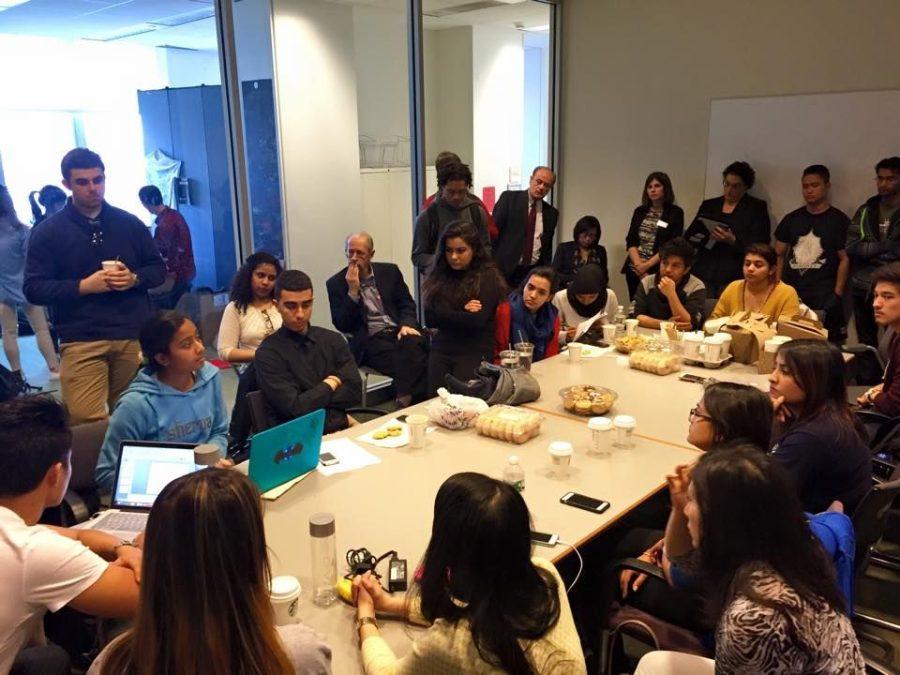The 7.8 magnitude earthquake that hit Nepal on April 25 has forever changed the lives of tens of thousands. The death toll has exceeded 6,200 people and is expected to rise as aid continues to trickle in.
The feeling is indescribable to the people who have lost their lives, their loved ones, the roof over their heads, and the cultural landmarks they grew up with.
Nepal, home to Mount Everest and a place tourists have described as a “home away from home,” will take years to rebuild. That is unfortunately the reality of such disastrous events like this earthquake. But if the community involvement and outpouring of support on the University of Massachusetts Boston campus is any indication, rebuilding the country will be a result of unity and resilience.
The recently formed Nepalese Student Association, NSA, sprang into action over Facebook during the weekend of April 25. They organized and met on campus on April 27, with students and staff filling up the Student Organization Offices area on the third floor of the Campus Center. The club has been fundraising on campus and online in order to send help to those in desperate need in the days immediately following the earthquake. The club will hold a cultural night on campus on May 7 to continue raising awareness and much needed money, which will be sent directly to the people who can use it.
Some have criticized the lack of support from local authorities, but kept a positive outlook and message. Lisha Shakya, a Nepalese student majoring in biology, asked for people to pray for those impacted by the earthquake. “I hope the local people will come together, because there is not much the government can do for us,” Shakya said.
“Even the dead still need to be buried,” added Prajwal Acharya, a sophomore studying biology. He also expressed sadness due to the complete destruction of the Dharahara tower by the earthquake.
Reshu Lamsal, vice-president of the Nepalese Student Association, lamented the loss of so many cultural landmarks. She said places like the Dharahara are the first things people see when they visit the country.
Students have described feeling helpless and alone, but stronger as a community. Lamsal said the past few days have been the most overwhelming days of her life, and spending as much time with this on-campus group has kept her motivated. There is little she can do for her extended family still in Nepal from such a long distance, but she has found strength in the support NSA has received from the university community.
Two days after the earthquake, on April 27, UMass Boston Chancellor J. Keith Motley extended his condolences in a mass email to the university community. Motley made a note of the big Nepali community in the Boston area, and spread the news about the NSA gathering later that afternoon. On behalf of the UMass Boston community, he promised to provide support to those affected by the tragedy: “We pledge to do everything we can to support them as they reach out to loved ones in their homeland and to organize efforts to assist the recovery in Nepal.”
Students who are impacted by the earthquake have risen to the challenge. They now know first hand what it’s like to live with uncertainty, but they have taken it upon themselves to do for their country and their community something even their government hasn’t done well. They have been raising funds to send to those impacted by the earthquake and its aftershocks. They mobilized the moment there was a need, and have done so while keeping a positive focus.
There will be many revelations about the impact of the earthquake in Nepal. But one of the first and most powerful efforts to remember should be how a community of Nepalese and other UMass Boston students have mobilized constructively and effectively to solve a problem impacting most of them and their families.
UMass Boston Mourns Over the Nepal Earthquake
May 4, 2015





















































